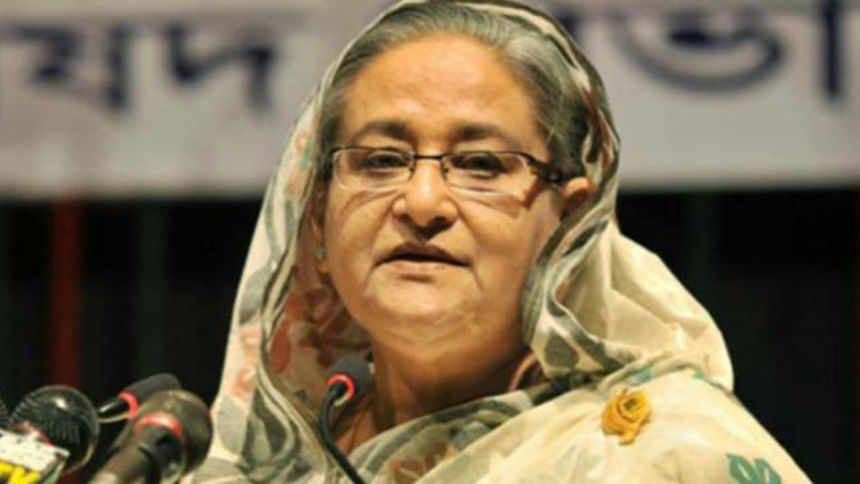Human Rights Watch has alleged that the death penalty against ousted prime minister Sheikh Hasina followed a process that "failed to meet international fair trial standards."
"There is enduring anger and anguish in Bangladesh over Hasina's repressive rule, but all criminal proceedings need to meet international fair trial standards," said Meenakshi Ganguly, deputy Asia director at Human Rights Watch (HRW).
"Those responsible for horrific abuses under the Hasina administration should be held to account after impartial investigations and credible trials."
The HRW came up with the statement after the International Crimes Tribunal-1 of Bangladesh yesterday sentenced Hasina and Asaduzzaman Khan Kamal, the former home minister, to death for crimes against humanity during the violent suppression of student-led protests in 2024, Human Rights Watch said today.
The HRW statement said the both were prosecuted in absentia, not represented by counsel of their choosing, and sentenced to death, raising serious human rights concerns.
The Bangladeshi authorities committed serious human rights violations during the three weeks of protests in July and August 2024 that toppled the Hasina government.
While those responsible for abuses should be appropriately held to account, the prosecution failed to meet international fair trial standards, including for a full opportunity to present a defense and question the witnesses against them, and the right to be represented by counsel of one's choosing. Concerns over the fairness of the trial are exacerbated by the death sentences, the New York-based rights organisations said.
Trials in absentia fundamentally undermine the right to a fair trial as set out in article 14 of the International Covenant on Civil and Political Rights (ICCPR), which is crucial to a legitimate legal process, the statement mentioned.
The rights organisation alleged the International Crimes Tribunal proceedings during Hasina's rule repeatedly failed to meet international fair trial standards and imposed the death penalty. Human Rights Watch opposes the death penalty in all circumstances because of its inherent cruelty.
The HRW urged the government to respond to any demonstrations in accordance with the UN Basic Principles on the Use of Force and Firearms by Law Enforcement Officials. Awami League leaders should discourage violence by party supporters opposing the tribunal verdict, it said.
"Victims of grave rights violations committed under the Hasina government need justice and reparations through proceedings that are genuinely independent and fair," Ganguly said. "Ensuring justice also means protecting the rights of the accused, including by abolishing the death penalty, which is inherently cruel and irreversible."

